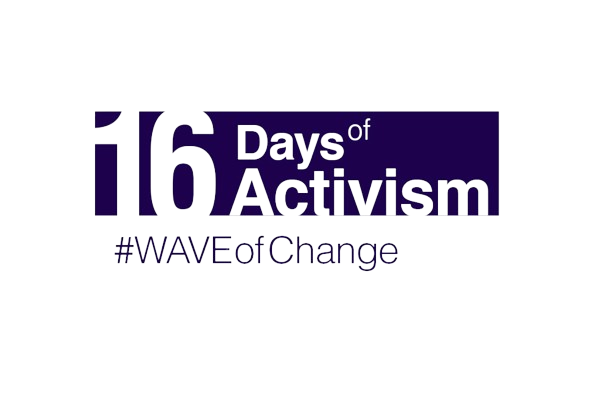On this International Day for the Elimination of Violence against Women and Girls, the WAVE Network reflects on 30 years of enduring commitment to ending violence against women and girls (VAWG) across Europe. This year’s 16 Days of Activism holds a dual significance for us. It is both a celebration of our collective journey toward Feminist Collective Liberation and Resilience—a moment to honour our shared history, recognise our present strength, and envision a future where every woman and girl lives free from violence—and a call to reflect deeply on the challenges and opportunities that lie ahead. These reflections are shaped by a global feminist dialogue centred on the ongoing review and appraisal of the Beijing Declaration and Platform for Action, as part of the Beijing +30 process.
The WAVE Network, a collective of over 1,600 women’s organisations spanning 46 countries, stands as a testament to the resilience and relevance of feminist advocacy. For three decades, WAVE has been at the forefront of the fight for women’s rights, uniting women’s organisations across Europe to challenge patriarchal systems, support survivors, and amplify feminist demands. Like the Beijing Platform for Action, WAVE remains resolute in addressing the evolving challenges to women’s rights and advancing the shared vision of a world free from violence and oppression.
Our Journey Towards Collective Liberation
For 30 years, WAVE has stood as a beacon of solidarity and communal care, uniting women’s organisations across Europe in the fight against patriarchal systems that fuel gender-based violence against women. Rooted in comradeship, mutual support, resistance and feminist methodologies, we have worked to amplify the voices of survivors, challenge inadequate state responses, and build a movement centred on the power of coming together and uniting in empathy, justice, and equality.
Yet, while we celebrate decades of progress, we acknowledge the persistent challenges that continue to undermine our fight for gender equity. These include systemic misogyny, institutional violence, insufficient funding, entrenched stereotypes, gendered poverty, the discrimination of gender non-conforming identities, and exclusion from decision-making spaces. Compounding these are new challenges: an organised backlash against women’s rights, the appropriation and misuse of feminist liberation narratives, tech-facilitated violence, performative intersectionality, including the systemic exclusion of racialised, migrant and undocumented women, the push for gender neutrality, and the gendered impacts of climate change. All of this is exacerbated by the expectation that we conform to the system, express gratitude for past achievements, and remain silent in our demands for deeper, transformative change.
In response to these challenges, we persevere. We gather our strength and ideas, strategising towards a future free from violence. In doing so, we celebrate our existence, and in that, celebration itself becomes a radical act of resistance. It defies the structural hopelessness imposed by patriarchy and honours the solidarity and dignified anger that fuel our activism. It validates the power of women’s collective action and declares unequivocally that women are central to society, to democracy, and to the future.
As we dare to imagine a different reality—one where violence against women no longer exists—we create space to nurture one another, share collective demands, and build a movement rooted in feminist values. Together, we co-create spaces where hope and defiance coexist, and where imagination becomes a revolutionary act that empowers us to envision a future free from oppression.
This is the energy that propels us forward, the same energy we have brought—and will continue to bring—to the global feminist dialogue surrounding the Beijing +30 process. WAVE has reaffirmed its commitment to the Platform for Action and its key priorities, remaining a central actor in translating the principles of Beijing +30 into tangible, actionable change at both European and international levels.
Looking Forward: A Call to Action
As we continue the journey toward feminist collective liberation, WAVE commits to advancing both the priorities of Beijing +30 and the core values of our network. Together, we call for:
- Ending Violence Against Women and Girls
Our efforts must prioritise the prevention of VAWG from the outset. This requires a shift in perspective to ensure that primary prevention—actions to stop gender-based violence against women before it occurs, such as education, feminist self-defence, challenging gender stereotypes, and ensuring access to sexual and reproductive health rights—is treated as equally critical as secondary –survivor-centred trauma support, access to women’s specialist services- and tertiary prevention –judicial protection and stopping recidivism-. A truly comprehensive approach—integrating all three prevention levels—must be embedded in national action plans to end VAWG, supported by sufficient funding, and implemented through strong partnerships with community-led mechanisms and the active participation of women’s organisations.
- Effective Policies and Legislation
Existing policy frameworks, national and regional legislation, and international conventions must be implemented effectively. This includes the Istanbul Convention, the CEDAW Convention, and EU frameworks such as the Directive on VAW and DV, the Roadmap for Women’s Rights, the Gender Equality Strategy 2025–2030, and national laws. Survivor voices must be amplified in policy dialogues, ensuring their lived experiences inform and shape these frameworks. Robust enforcement of these policies is critical to addressing and preventing VAWG at every level.
- Accelerating Women’s Leadership
Achieving gender parity in decision-making requires bold action, including implementing temporary special measures to increase women’s representation across all levels of governance. Representation must be diverse and intersectional, particularly ensuring voices from underrepresented and marginalised communities are present in decision-making spaces. Uplifting young feminist leadership is especially crucial, bringing fresh perspectives and innovative approaches to resistance and emerging challenges.
- Bridging the Digital Gender Gap
We must ensure that women have equal access to technology and address the digital gender divide. Tackling cyberviolence against women involves recognising the continuum of violence from offline to online, addressing potential tech-based biases and discrimination against vulnerable populations, and promoting digital literacy. Safe-by-design online spaces that respect and uplift women’s human rights are essential. Simultaneously, we must embrace the positive potential of the digital space to empower diverse populations, ensuring women can fully benefit from an increasingly digital world.
- Women’s Economic Empowerment
Economic transformation is essential to support women’s empowerment. This includes ensuring equal and transparent pay, access to services tailored to women’s needs, and flexible working conditions. Special attention must be given to migrant, undocumented, racialised, and low-educated women who form the backbone of the care economy and sustain economic growth. Their unequal and insufficient pay and systemic violations of their rights must end. National budgets and economic policies must address the unpaid care burden historically shouldered by women and invest in public care services to support this essential labour.
- Strengthened Feminist Civil Society
Feminist civil society organisations are vital to healthy democracies and must be empowered to thrive. Governments must end restrictive laws, such as foreign agent regulations, that aim to intimidate and dismantle active civil society. Instead, they should invest in strong partnerships with feminist, women-led organisations to counter the gender backlash, nurture solidarity, and build collective strength within communities.
- Centring Women in the Green Transition
Women and girls must be prioritised in skills development and access to green jobs to ensure gender equality in the transition to sustainable economies. Governments must also invest in green solutions to transform economies by supporting sustainable, equitable industries that do not further harm our planet. A decolonial economic system, which moves away from reliance on overexploitation and extractivism in the majority world and the exploitation of women’s and girls’ cheap labour, is essential for achieving genuine economic empowerment for women and addressing climate justice.
- Feminist Foreign Policy, Women, Peace, and Security
A feminist approach to foreign policy must prioritise gender-responsive humanitarian action and stabilisation resources. Local women’s organisations leading responses to crises and conflicts should receive dedicated support during and after conflict. Actions must focus on stopping the renewed arms race and prioritising solutions that centre dialogue, mediation, and conflict resolution. Women must be included in peacebuilding negotiations, and their needs must be integrated into all peacekeeping and peace-making strategies.
A Collective Future
The 16 Days of Activism reminds us of the power of solidarity and collective action. As we look to the future, WAVE is ready to continue to build a feminist future, guided by the values of collective liberation and enhancing the principles of Beijing +30. Together, we will continue to challenge systems of oppression, build spaces of hope and resistance, and work toward a world free from violence, grounded in justice, equity, and shared humanity.
WAVE Network
Empowering Women. Ending Violence.
Click here for WAVE’s 16 Days of Activism 2024 calendar of activities!














